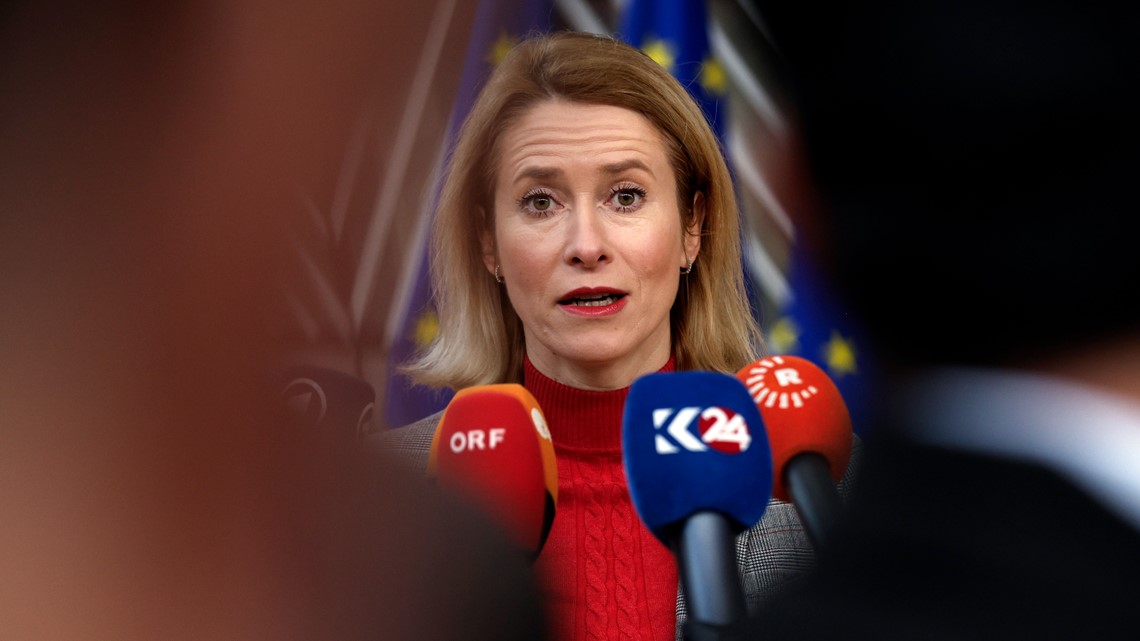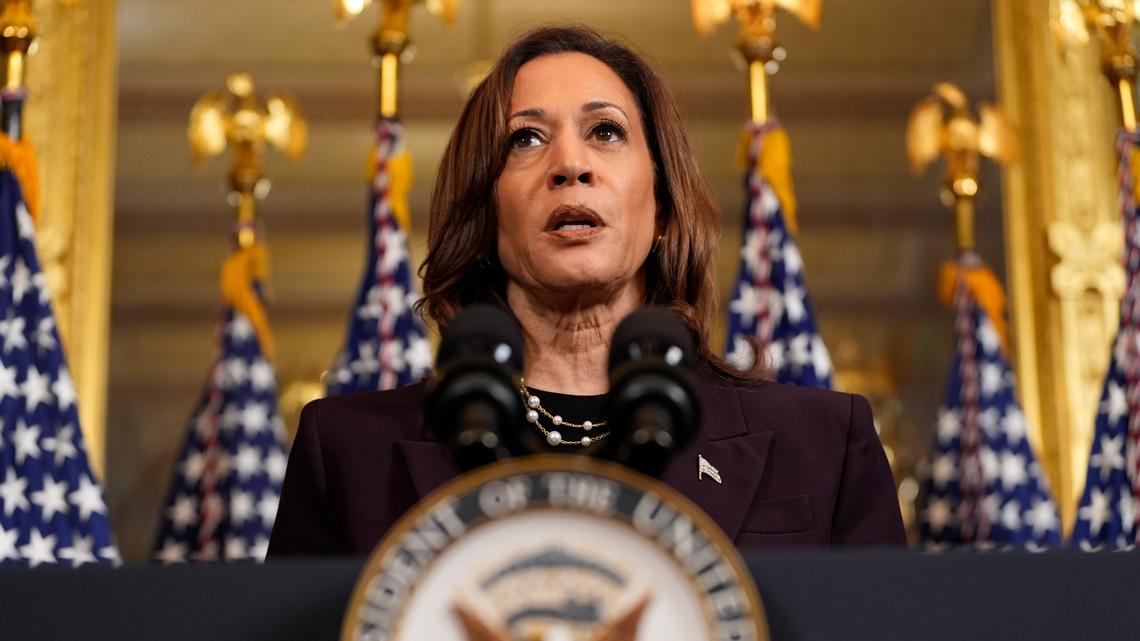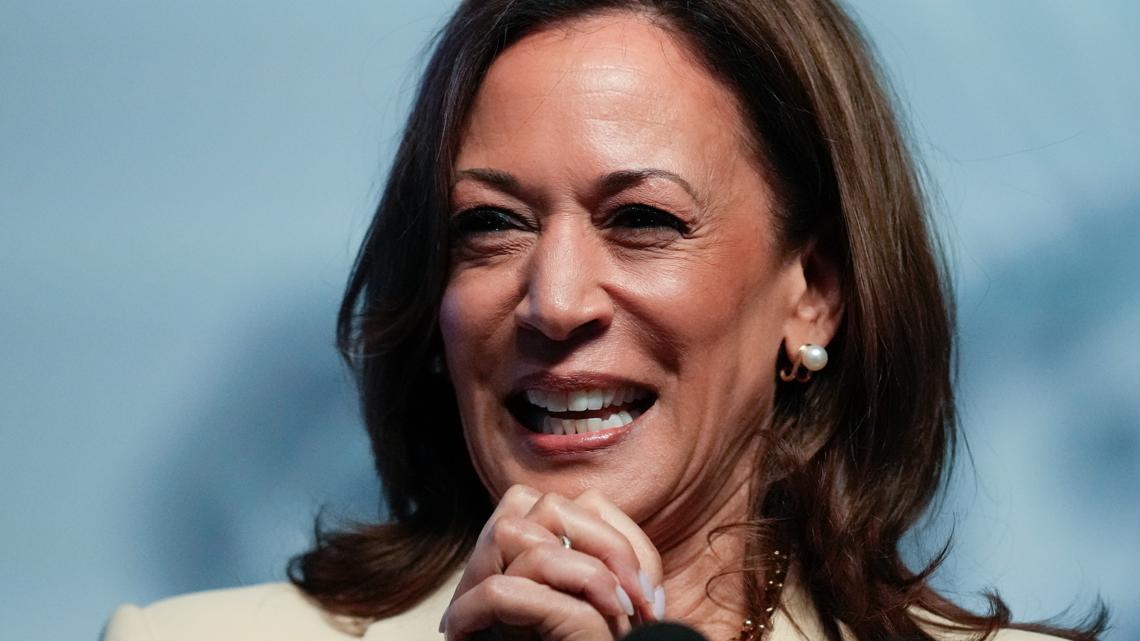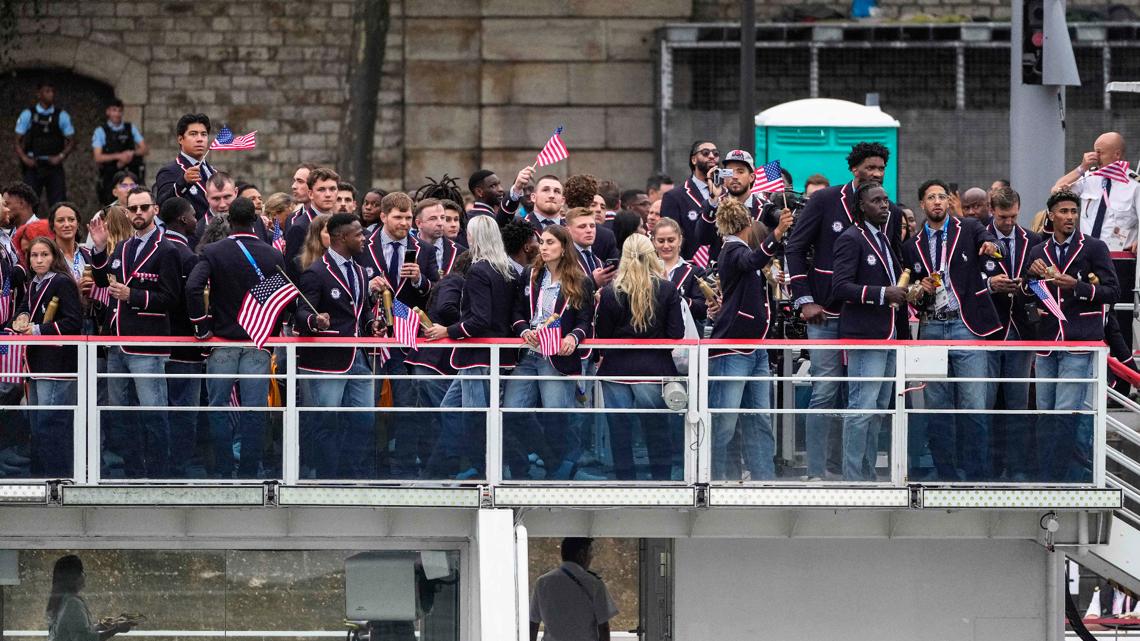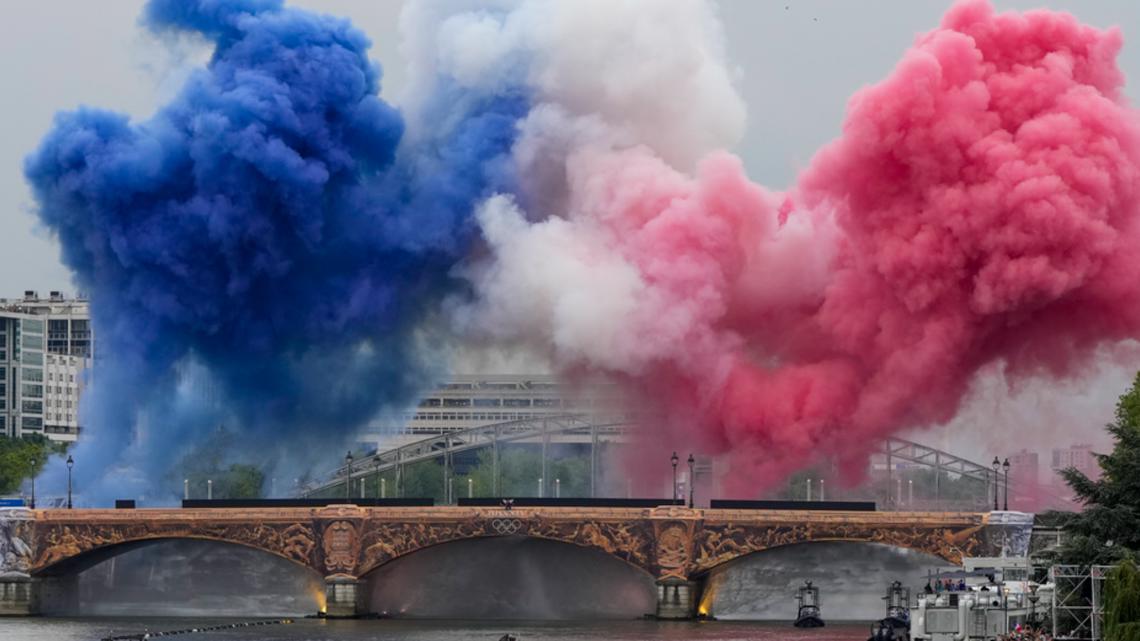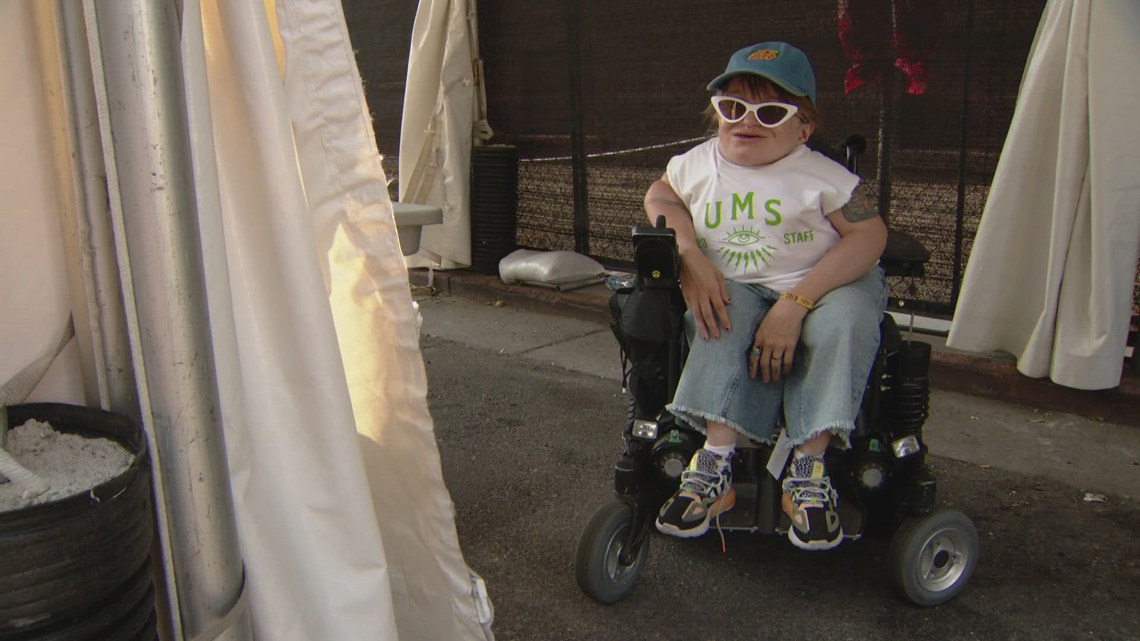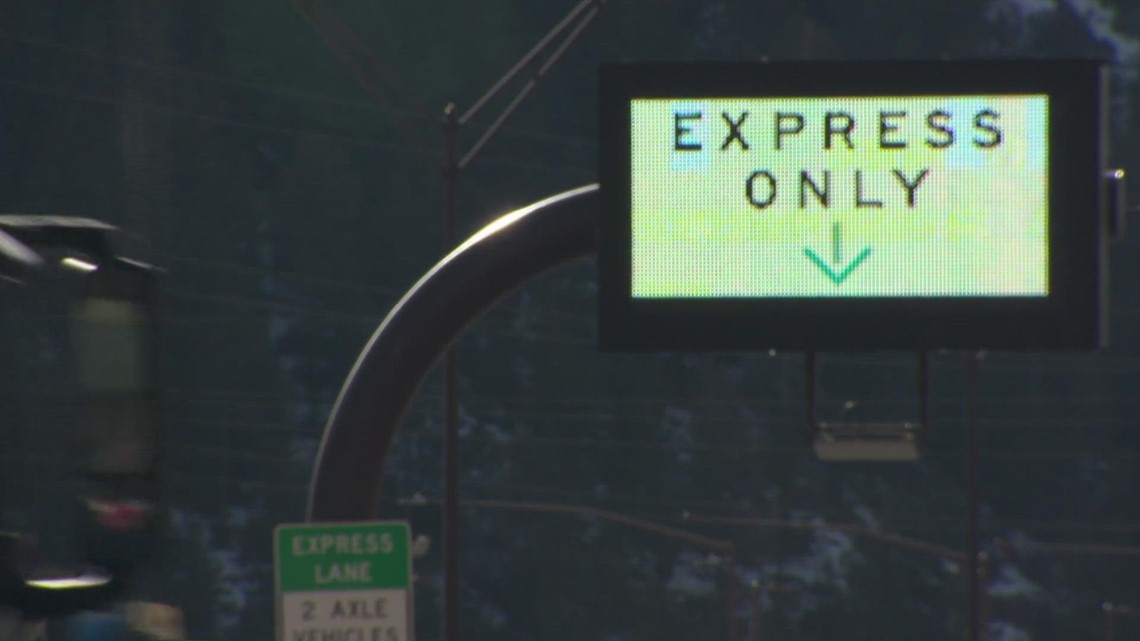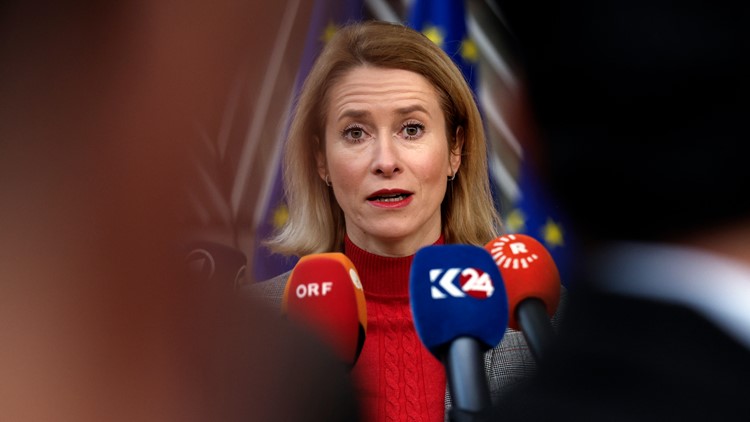
The wanted list in Russia also includes scores of officials and lawmakers from other Baltic nations.
TALLINN, Estonia — Estonia’s prime minister has been put on a wanted list in Russia because of her efforts to remove Soviet-era World War II monuments in the Baltic nation, officials said Tuesday as tensions between Russia and the West soar amid the war in Ukraine.
Russian media reported Tuesday that Kaja Kallas’ name appears on the Interior Ministry’s register of people wanted on criminal charges, but it was not clear when she was added to the list that also includes scores of officials and lawmakers from other Baltic nations.
The ministry didn’t specify what charges Kallas faces, but other officials said the move was related to her efforts to remove WWII monuments. Estonia and other NATO members — Latvia and Lithuania — have sought to remove the monuments widely seen as a legacy of Soviet occupation of the countries. Moscow has denounced those moves as a desecration of memory of Soviet soldiers who fell while fighting the Nazis.
The inclusion of Kallas — who has fiercely advocated for increased military assistance to Ukraine and stronger sanctions against Russia — appears to reflect the Kremlin’s effort to up the ante in the face of pressure from NATO allies as the war nears the two-year mark.
While it means little in practical terms as Russia-West contacts have been frozen during the conflict, it comes at a time when European members of NATO are growing increasingly worried about how the U.S. election will affect the future of the alliance.
It is the first time the ministry has put a foreign leader on a wanted list. Estonian Secretary of State Taimar Peterkop and Lithuanian Culture Minister Simonas Kairys are also on the list, which is accessible to the public, along with scores of officials and lawmakers from Latvia, Lithuania and Poland.
Russian Foreign Ministry spokeswoman Maria Zakharova confirmed that Kallas and Peterkop were put on the list because of their involvement in the removal of monuments.
Asked about the move, Kremlin spokesman Dmitry Peskov told reporters it was a response to action by Kallas and others who “have taken hostile action toward historic memory and our country.”
Russia has laws criminalizing the “rehabilitation of Nazis” that include clauses punishing the desecration of war memorials, and Russia’s Investigative Committee, the country’s top criminal investigation agency, has a dedicated department to deal with alleged “falsification of history” and “rehabilitation of Nazism,” which has ramped up its action since the start of the war, according to Mediazona, an independent Russian news outlet that analyzed the wanted list on Tuesday.
Russian President Vladimir Putin has said that ridding Ukraine of far-right, neo-Nazi groups is one of the central aims of his war there. Putin has offered no proof to back his repeated claims that such groups have a decisive voice in shaping the country’s policies.
The move could also mark an attempt by Moscow to counter last year’s arrest warrant against Putin that was issued by the International Criminal Court over the alleged deportation of Ukrainian children to Russia.
There was no immediate reaction from Estonian authorities.
The Russian move comes at a time of rising tensions between NATO and Russia — and also rising concern among European members of the alliance over the outcome of the U.S. election.
Former U.S. President Donald Trump has rekindled NATO allies’ fears that he could allow Russia to expand its aggression on the continent if he returns to the White House.
“You didn’t pay? You’re delinquent?’” Trump, the Republican front-runner, recently said he told an unidentified NATO member during his presidency. “‘No, I would not protect you. In fact, I would encourage them to do whatever the hell they want. You gotta pay.’”
That statement sharply contrasted with U.S. President Joe Biden’s pledge “to defend every inch of NATO territory” — as the alliance commits all members to do in case of attack.
Trump’s statement shocked many in Europe, drawing a pledge from the governments of Poland, France and Germany to bolster Europe’s security and defense power.

